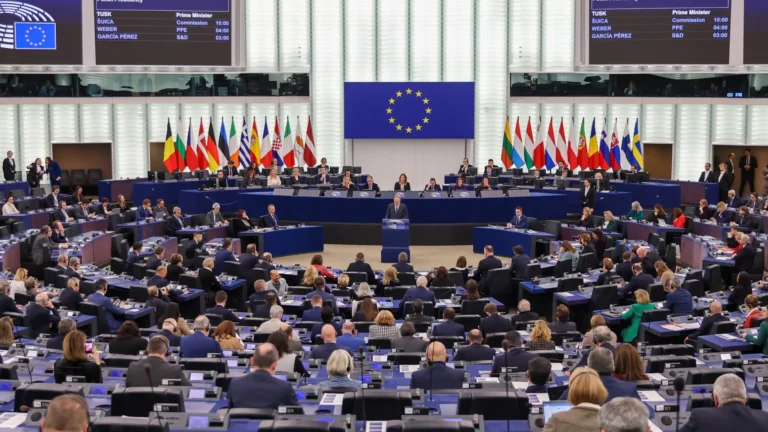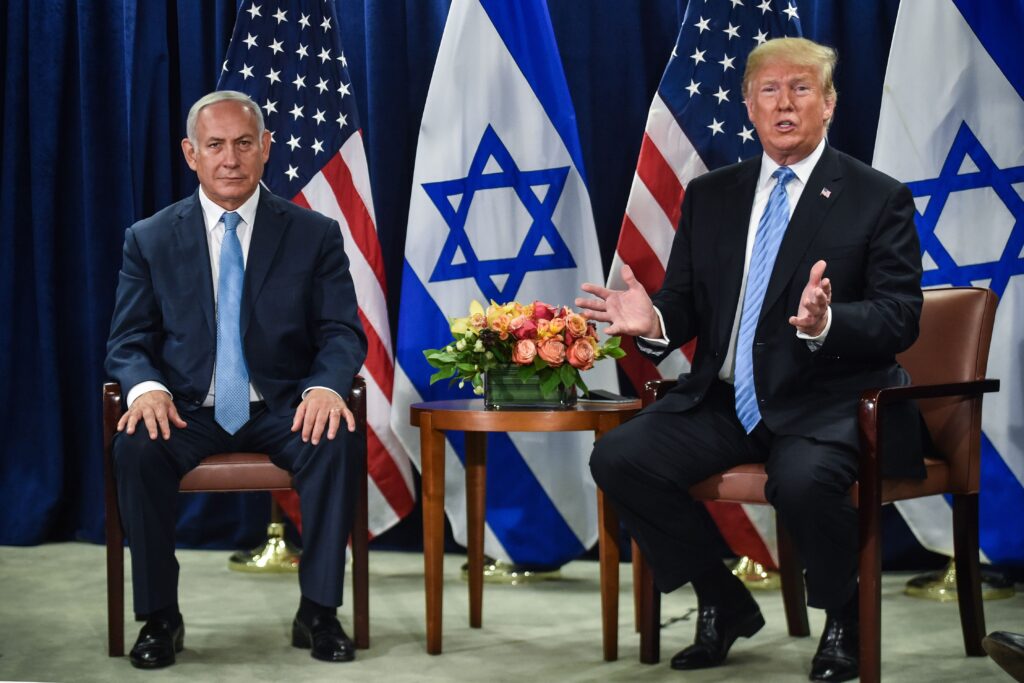
(Word leaders at UN Assembly:usatoday.com)
For the first weeks of his presidency, Donald Trump received a largely cautious, if cordial, reception from U.S. allies. European and Anglosphere leaders refrained from overt criticism, even as his unconventional style stirred private concerns.
That diplomatic restraint ended abruptly this week following Trump’s most controversial foreign policy proposal yet: suggesting that the United States assume control of Gaza, relocate its Palestinian population, and redevelop the area into a luxurious tourist destination, calling it the “Riviera of the Middle East.”
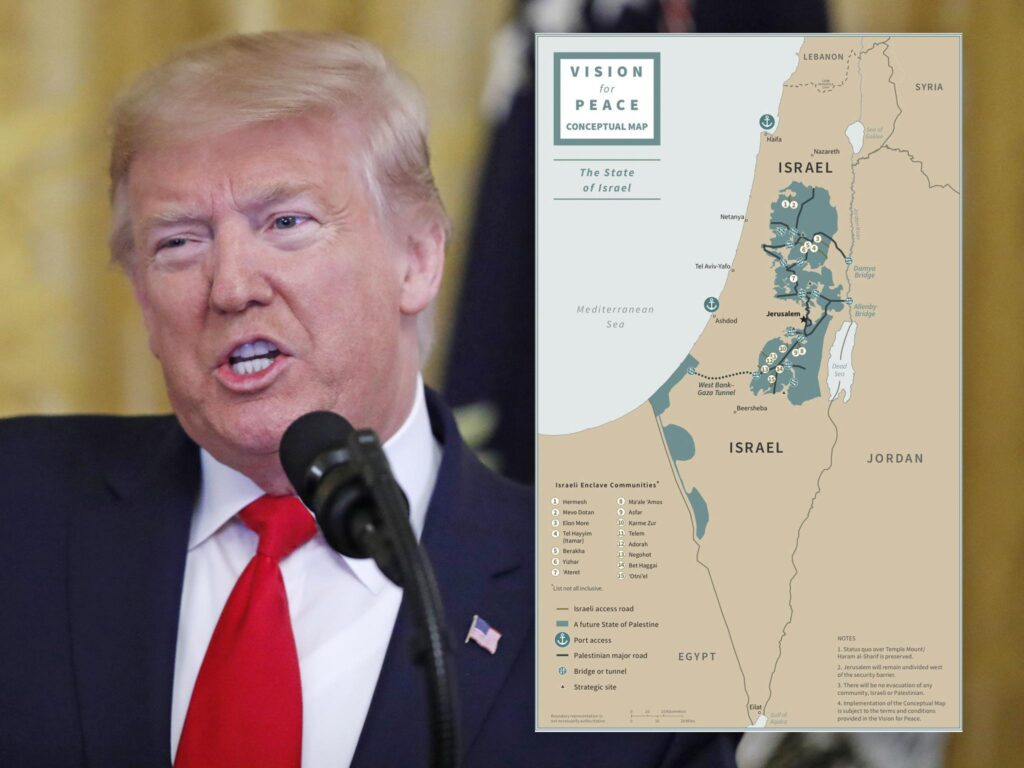
(Map of proposed Israel/Palestine state Borders according to usatoday.com)
The proposal diverged sharply from long-standing international efforts toward a two-state solution and was met with swift and widespread rejection. American allies in the region expressed deep concern over the impact such a statement could have on ongoing ceasefire negotiations between Israel and Hamas. Palestinians voiced strong opposition, emphasizing their connection to their homeland.
In Europe, where the United States typically maintains stable relationships, leaders delivered a clear and unified response: they do not support the idea.
However, Trump’s proposal places America’s allies in a challenging position. Publicly criticizing a U.S. president—particularly early in a term—is often viewed as a last resort.
Global Reactions
Jon B. Alterman, a former U.S. State Department official and now director of the Middle East Program at the Center for Strategic and International Studies, described allied leaders as “gobsmacked,” suggesting that few had anticipated such a proposal.
Beyond immediate reactions, the broader implications are significant. Trump’s approach to global affairs—marked by unpredictability—has, at times, strained relationships with traditional allies. His remarks on Gaza, whether meant as a serious policy suggestion or a provocative negotiation tactic, may accelerate that trend.
“This administration has both an instinct and an appetite for disruption,” Alterman noted. He suggested that European leaders may increasingly question their reliance on a United States that appears more focused on its own interests and less invested in multilateral diplomacy.
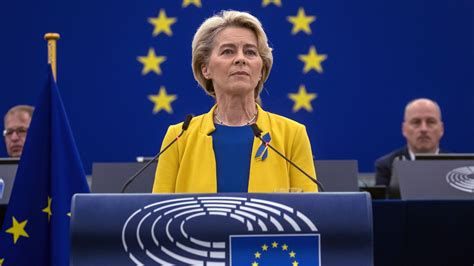
(Top E.U. Official Is Becoming an Unexpected Wartime Leader – nytimes.com)
Tensions Between Trump and European Leaders
While many Western nations have grown more accustomed to Trump’s leadership style, his return to office was expected to present new diplomatic challenges.
The United Nations strongly condemned the proposal, with its secretary-general warning against forced population transfers, which are prohibited under international law. France called the idea a “serious violation” of global agreements, while Spain’s foreign minister stated plainly, “Gazans’ land is Gaza.”
Germany also rejected the proposal, with President Walter Steinmeier calling it “unacceptable.” Foreign Minister Annalena Baerbock warned that such a move would “lead to new suffering and new hatred.” Among Western European leaders, only Dutch far-right politician Geert Wilders expressed support, suggesting that Palestinians relocate to Jordan.
Eric Nelson, a former U.S. ambassador and foreign policy expert, told CNN that anticipating Trump’s next move remains a challenge for diplomats. “It was always difficult to predict what he would do next,” he said, adding that Germany’s dismissive response was unsurprising, especially amid its upcoming elections.
For some countries, however, the political calculus is more delicate.
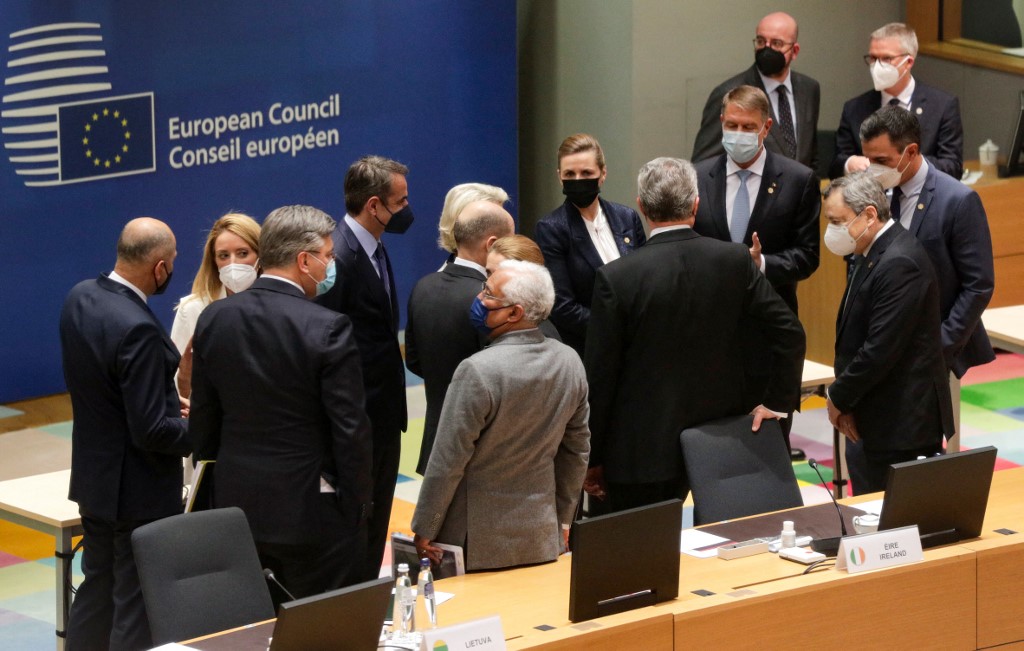
The United Kingdom’s Balancing Act
As a close U.S. ally, the United Kingdom is navigating a careful diplomatic path. Prime Minister Keir Starmer has sought a strong relationship with Trump, a strategy that appears to be yielding results—Trump recently praised Starmer and hinted that Britain could be exempt from tariffs he has threatened to impose on the European Union.
This dynamic has made London cautious in its response. Foreign Secretary David Lammy acknowledged the humanitarian crisis in Gaza but stopped short of directly criticizing Trump’s proposal. Instead, he reiterated Britain’s long-standing support for a two-state solution, seeking to balance diplomatic priorities without alienating Washington.
A Labour Party lawmaker admitted to CNN that many members of Parliament were privately dismayed by Trump’s suggestion but recognized the political risks of public condemnation, particularly given Britain’s economic and security ties with the U.S.
The Broader Impact
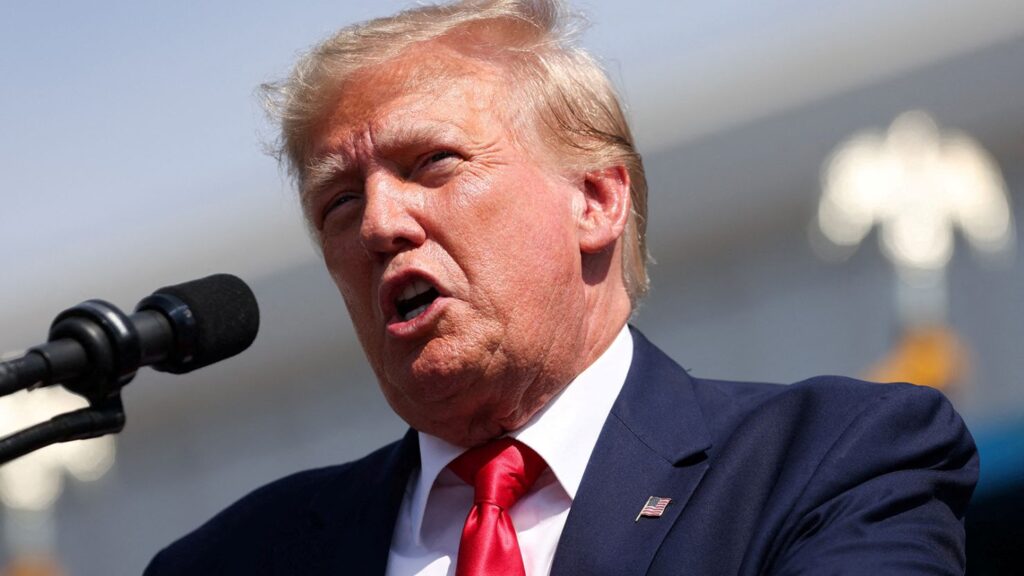
(President Trump during a rally:cnn.com)
Trump’s approach to foreign policy has frequently involved making bold, unexpected proposals—often sparking debate over whether they are serious policy plans or negotiation tactics designed to force action. Some analysts believe that by presenting an extreme position, Trump may be pressuring allies to propose alternatives.
“We’ve seen this strategy before,” said Nathan Sales, Trump’s former counterterrorism coordinator. “Most Western allies have been locked in the same approach to the Israeli-Palestinian conflict for years. Trump is challenging that.”
However, such disruption carries risks. Alterman warned that breaking from established diplomatic norms could push some nations to reconsider their reliance on the United States. “Some countries may seek stronger ties with Russia or China,” both to reduce their dependence on the U.S. and because they question the moral benefits of aligning too closely with Washington.
This concern is further amplified by Trump’s history of withdrawing from international agreements and reducing funding for global institutions, including the U.S. Agency for International Development (USAID). Former Ambassador Nelson cautioned that cutting such programs could weaken American influence abroad.
Looking Ahead
The Gaza proposal is unlikely to be the last flashpoint between Trump and U.S. allies. Many are already bracing for potential shifts in American policy on Ukraine, where Trump has previously suggested concessions to Russia.
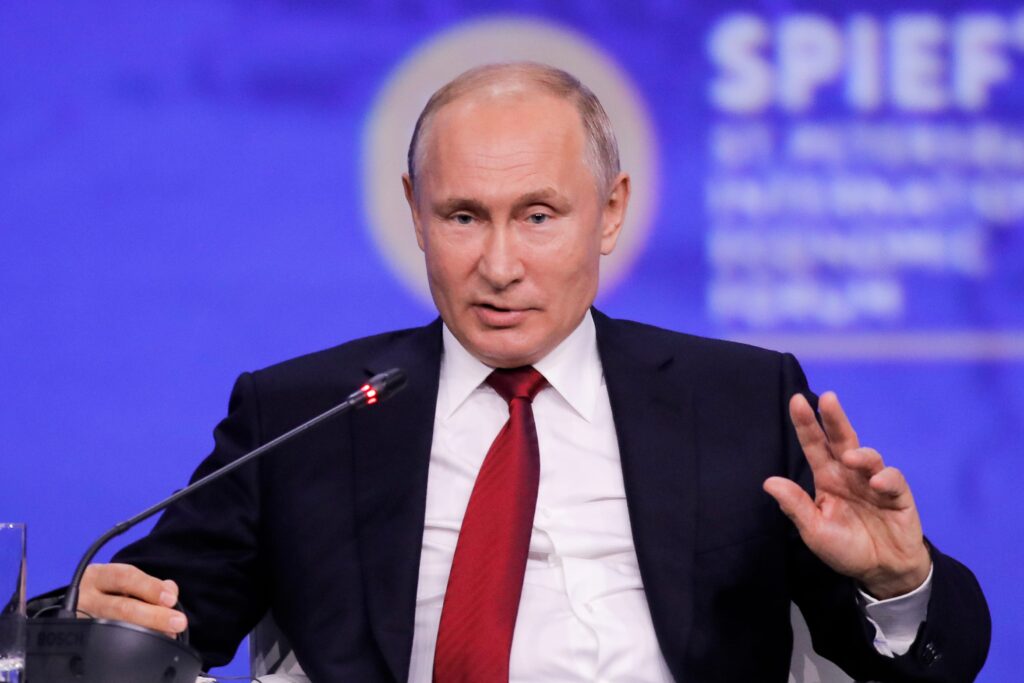
(Vladimir Putin in picture by static3.businessinsider.com)
These discussions are expected to take center stage at the upcoming Munich Security Conference, where top Trump administration officials—including Secretary of State Marco Rubio and Vice President JD Vance—will engage with European leaders.
“The Biden administration focused on reliability and predictability in foreign policy,” Alterman said. “The Trump administration has taken the opposite approach.”
As international leaders assess Trump’s latest proposal and its implications, one thing is clear: the era of diplomatic restraint toward his administration may be over.

